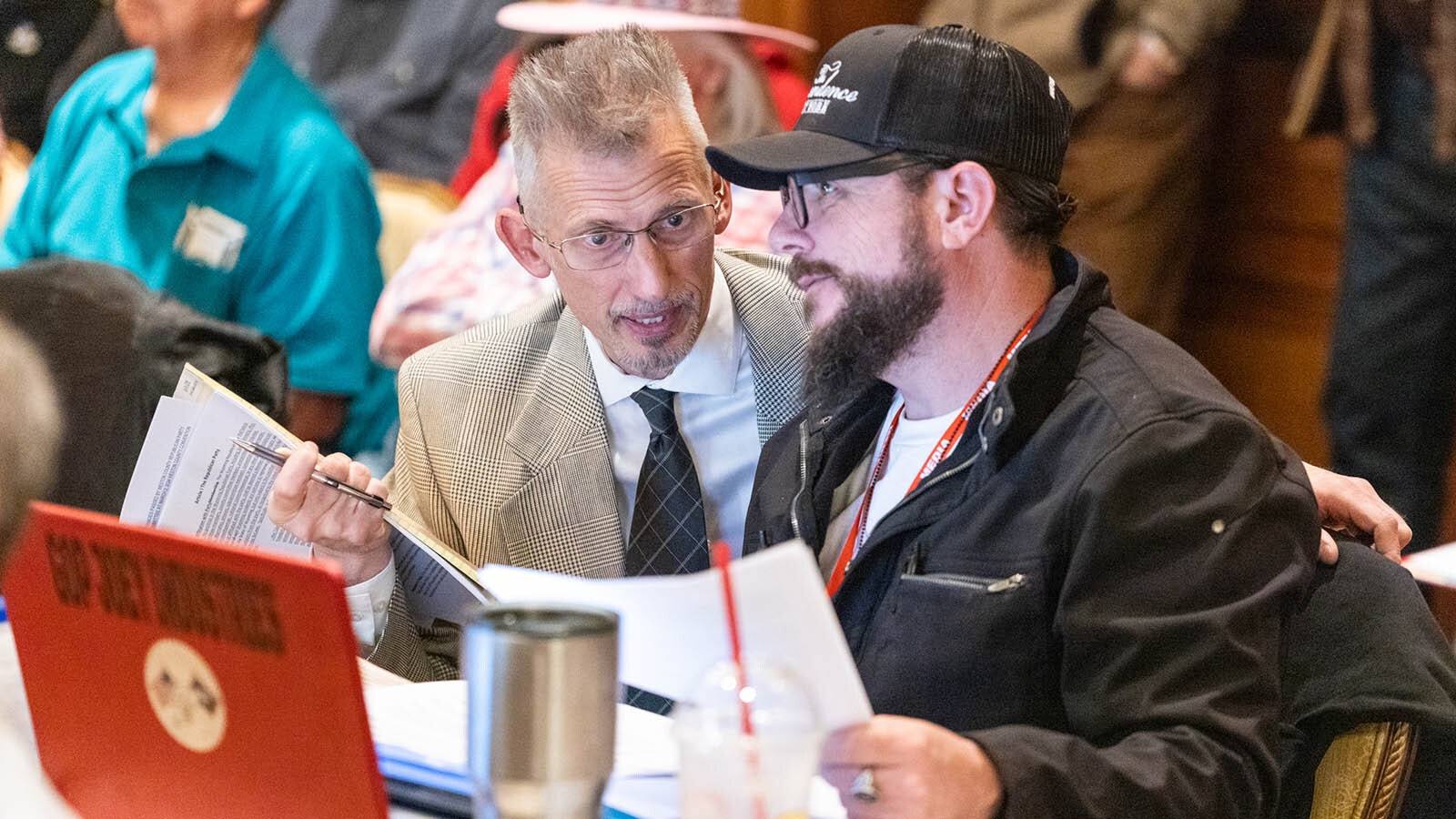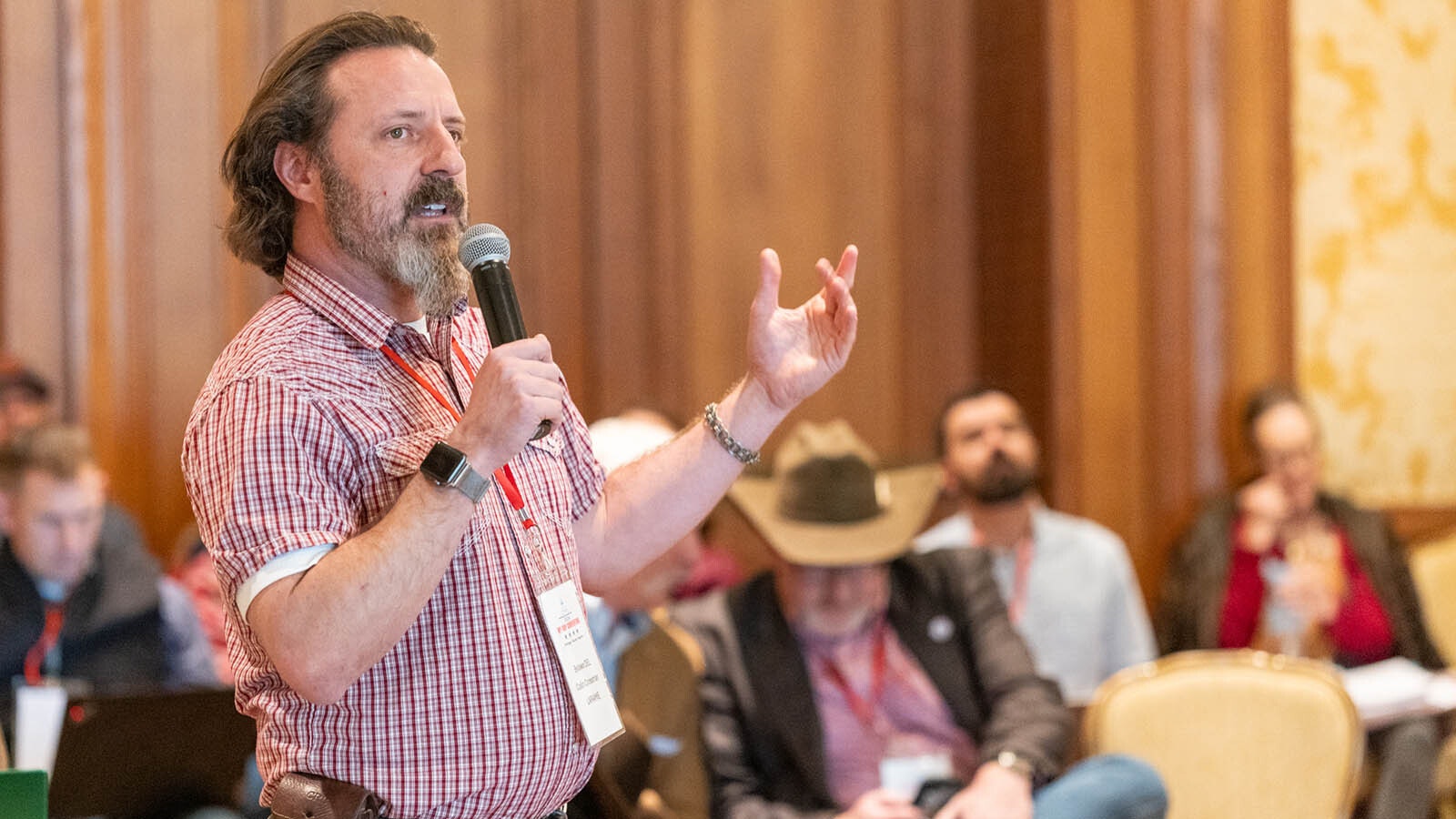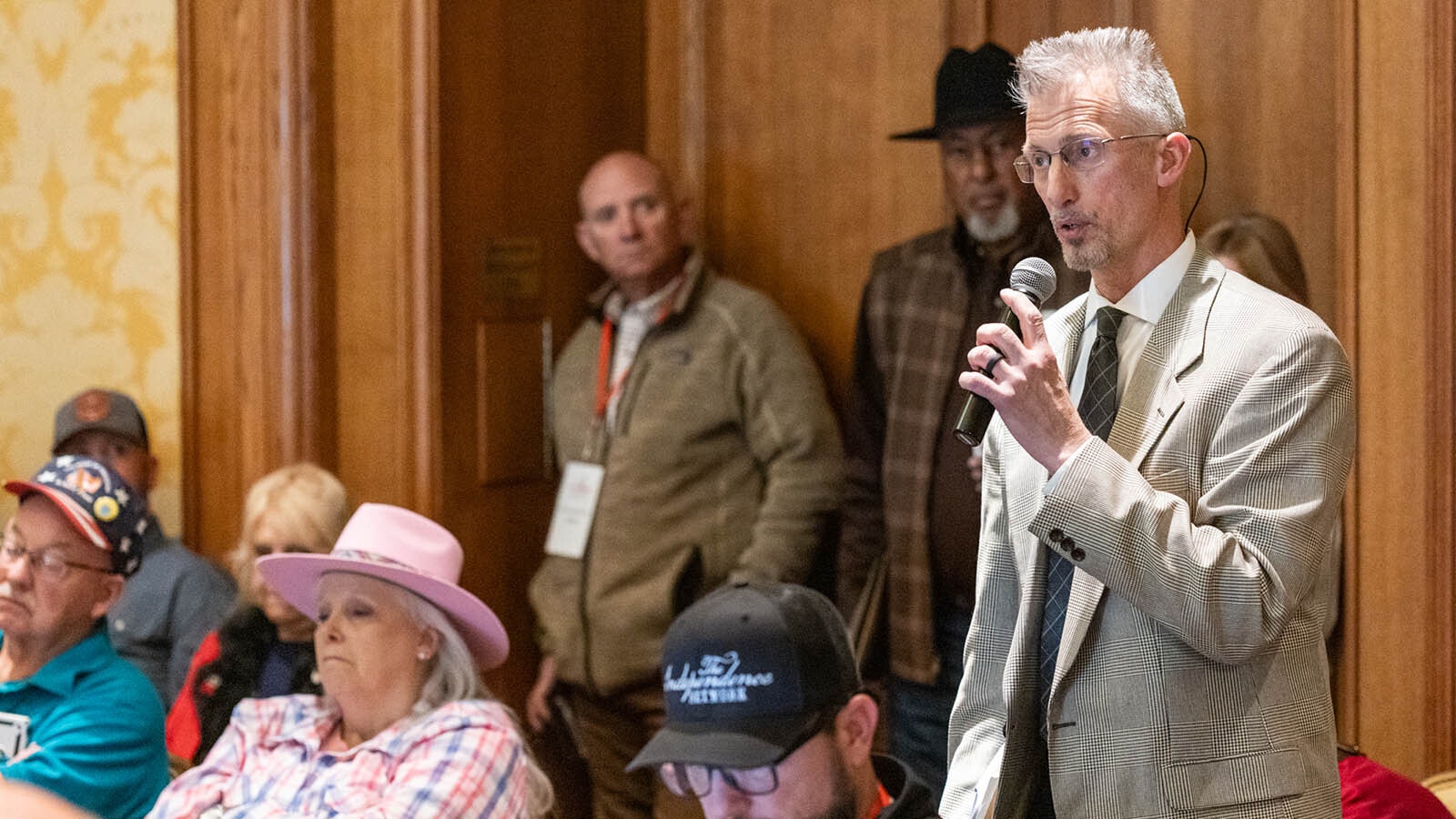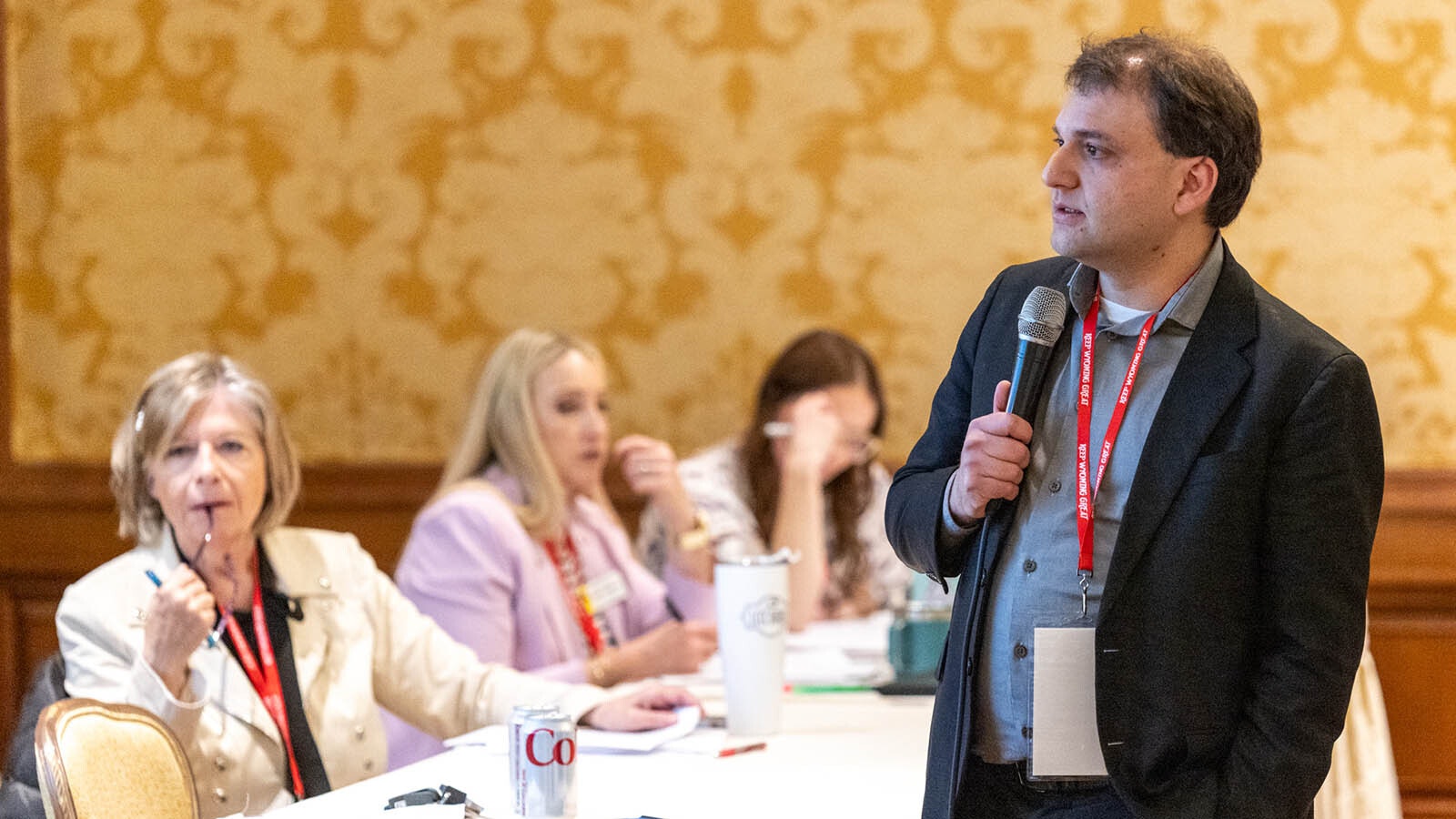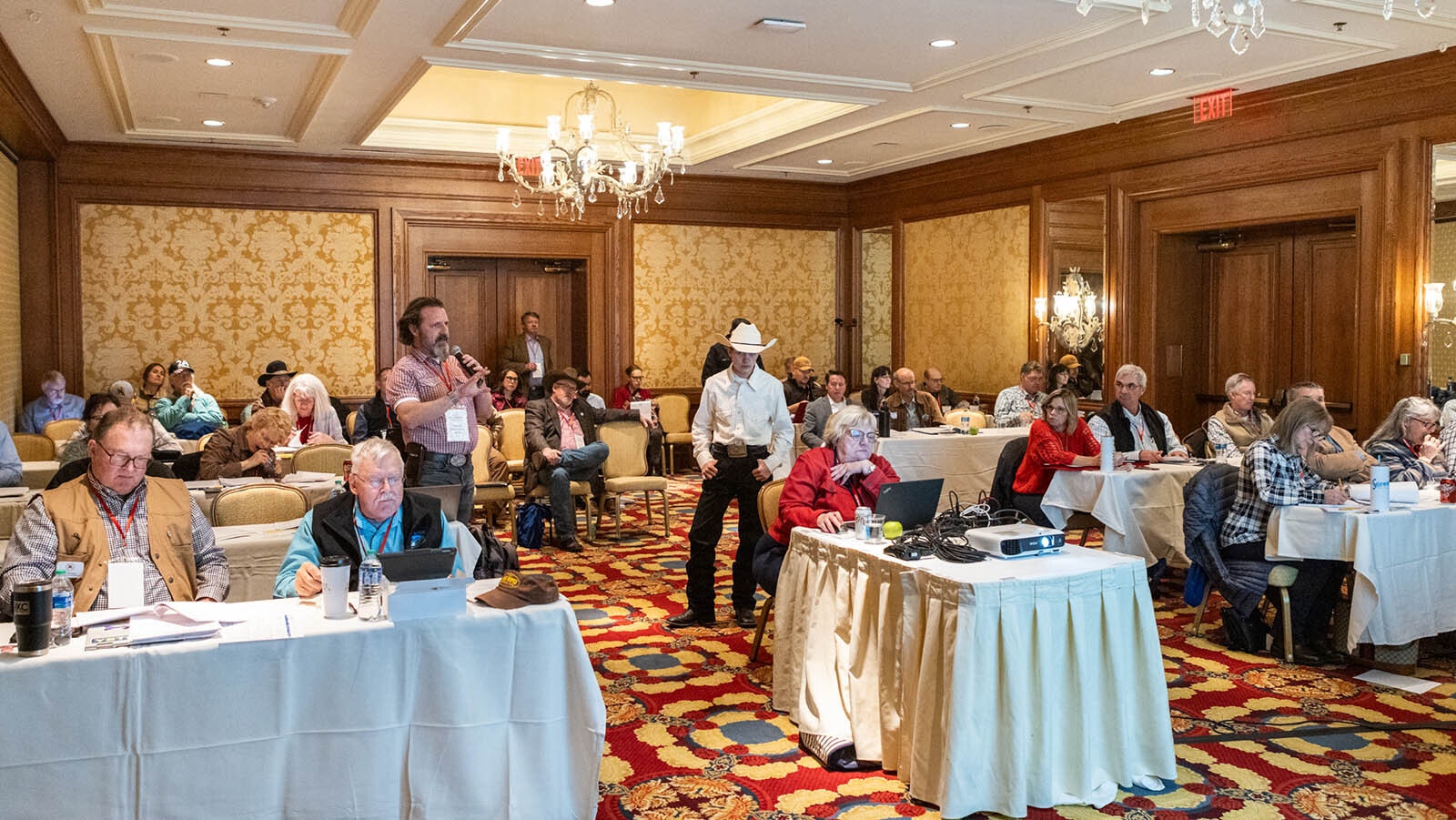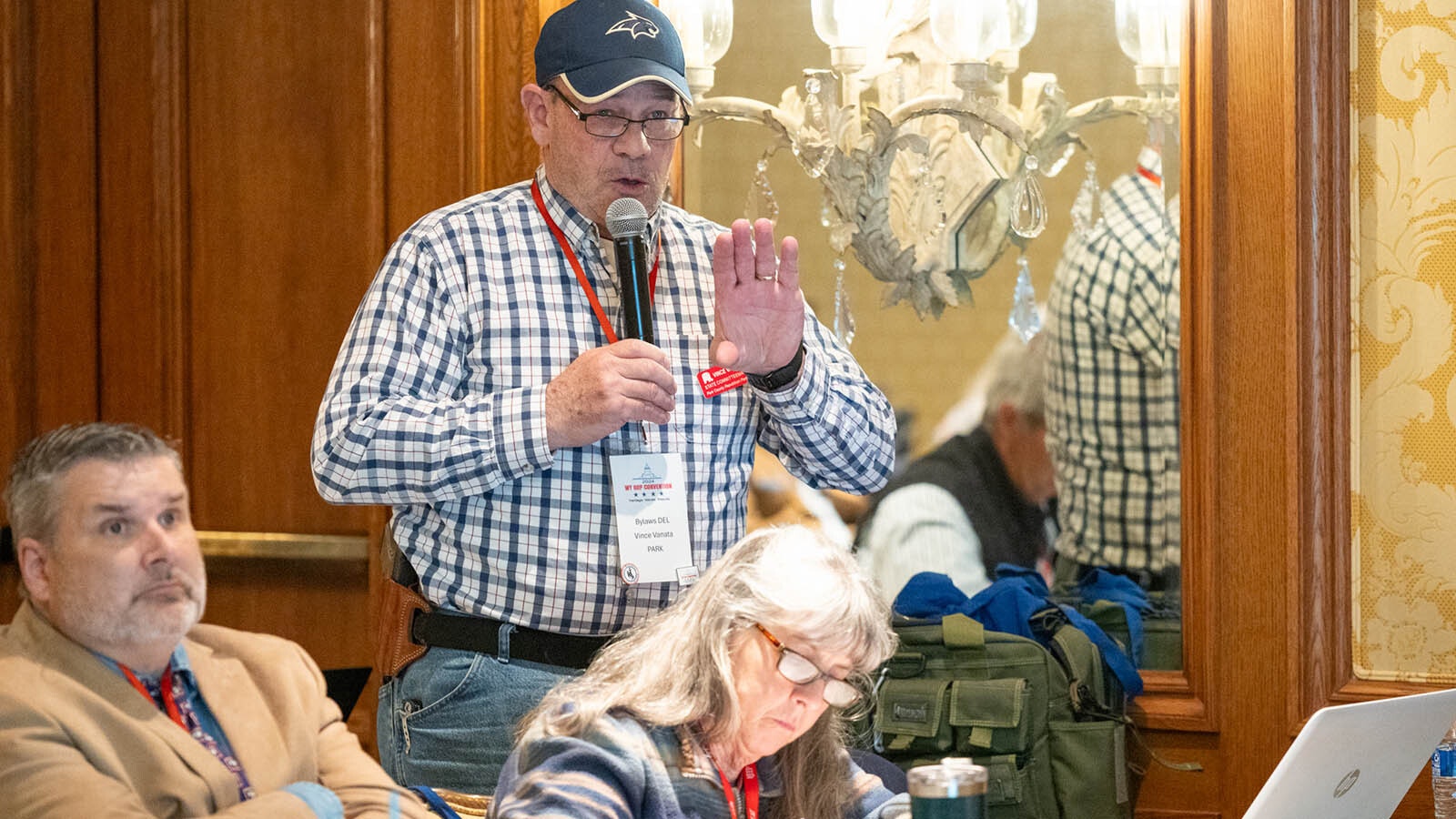CHEYENNE — After about eight hours of discussion and debate Thursday, a Wyoming Republican Party committee rejected a proposed bylaw change nicknamed the “Liz Cheney Amendment” that would have given the party expansive powers to remove members they didn’t like.
Although dozens of amendments and changes were made to the rules over the course of the opening day of the state GOP convention at Little America in Cheyenne, it was all for naught as the Bylaws Committee rejected the proposal by a relatively wide margin.
Park County GOP Committeeman Vince Vanata supported the changes and was disappointed they didn’t go through.
“Now I know how the legislators in the 2024 session feel,” he remarked to Cowboy State Daily.
Colin Crossman, head of the business division for the Wyoming Secretary of State’s office and also a Laramie County GOP delegate, said he believed people’s opinions about the bylaws evolved over the course of the discussion.
“A lot of people came in with an open mind, and given that it wasn’t defeated immediately, I think people put things in there to see if they could make it good,” he told Cowboy State Daily.
But by the end of the discussion, even supporters of the original proposal commented that they believed the bylaws had morphed into something far different than what was intended.
“Over the course of the discussion I think that became abundantly clear,” Crossman said.
Cheney Inspired
The proposed bylaws had originated with the Weston County Republican Party. Weston County GOP Chair Kari Drost said the 34-page document had been nicknamed “the Liz Cheney amendment” for the former Wyoming congresswoman who lost most of her support with state Republicans.
Cheney fell out of favor with the Wyoming GOP after she spoke out against former President Donald Trump. This led the Wyoming GOP to censure her in 2021 for voting to impeach Trump for his role in the Jan. 6, 2021, Capitol riot.
“There was a group of citizens in Weston County very, very concerned about Liz Cheney and the way she tried to infiltrate and change our party,” Drost said.
The purpose of the rules was to give the state party authority to remove and call out members believed to not be acting as true Republicans. This has become a problem associated with crossover voting, the process of changing party affiliation to influence another party’s primary election. Also, with the 2024 elections right around the corner, the party could have potentially mobilized many attacks against certain candidates it didn’t like.
Although the bylaws would have held standing for internal party affairs, they had little to no teeth otherwise besides a formal public statement, such as alerting the public a candidate is not a Republican as they say.
Many within the party believe it should be treated as a fully private organization or club, and as such can choose its membership.
“As a club we are a voluntary organization and people can choose to join us or not and we have the ability as a club to control what is discussed and debated and the meaning of our being a club,” Drost said.
What Do The Rules Do?
The bylaws would have addressed people in the party believed to not be behaving as Republicans with their voting actions or support of certain political candidates.
Even some of the party’s most conservative members like Carbon County GOP Committeeman Joey Correnti opposed many of the proposed bylaw changes, arguing they conflict with state law on a number of points, although he completely supported the reasoning and sentiment behind them. Specifically, Correnti argued that passing many of the bylaws would have run contradictory to the party’s platform goal to actively recruit new members.
Correnti said the way the proposed bylaws were written ran contrary to the party’s stated belief in freedom of speech, the right to earn and spend money as seen fit, and the right to work.
“The right to do all those things without fear of retribution, even if they can’t be applied legally against us in a court of law, they should still be our principles,” Correnti explained to Cowboy State Daily.
Brian Shuck, general legal counsel for the Wyoming GOP, advocated for the legality of the bylaws a few different times. He asserted that even though the bylaws may have conflicted with some state laws, he believes those state laws conflict with federal law and the U.S. Constitution, and indicated the party shouldn’t shy away from potential lawsuits.
“The party is going to have to decide if it wants to make a stand on the U.S. Constitution and a stand against statues that continue to violate the U.S. Constitution,” he said.
When discussing aspects of the bylaws that would have tried to prohibit members from publicly declaring as Republicans and registering as such, Shuck went even further, arguing that the party isn’t required to guarantee freedom of speech to its members, as he sees the party as a private organization or club.
“The First Amendment has no application to the Wyoming Republican Party,” Shuck said. “The amendment makes sure the government is not trampling on free speech. The First Amendment does not restrict what the party does.”
Drost deferred to and consulted with Shuck at numerous times during Thursday’s nearly eight-hour discussion.
Somewhat Reduced
Before voting, the committee removed some of the farthest-reaching drafted restrictions, such as prohibiting people from voting and registering as Republicans after they’ve been “excluded” from the party and removing state senators and representatives who voted in support of a Democratic Party plank.
Crossman and Correnti offered most of the amendments on these actions, and Crossman warned that many of the rules could be weaponized if the farther right political makeup of the Wyoming GOP changes some day.
“Something people forget is that a lot can change with a party in 10 years,” he said.
During the discussion, the committee also removed restrictions saying people can’t run for public office after being kicked out of the party, but that wouldn’t have stopped the party from taking action against its precinct committee members. Those people are publicly elected, but only serve within the capacity of party meetings.
Leo Wolfson can be reached at leo@cowboystatedaily.com.

